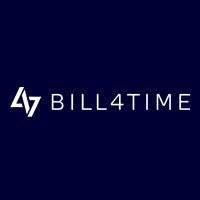While many fresh law school graduates come out with a wealth of skills, administrative skills may not be one of them. Time tracking for first-year associates is typically learned from other lawyers or from internet searches, which may not be the most current or productive methods.
Spreadsheets, quick notes, or tracking your time at the end of the month from memory are not ideal for keeping accurate records. In addition to missing out on time you could bill, you may overbill a client, lose sensitive information, make a detrimental error, cost your firm money, or damage your reputation.
What are billable hours?
Billable hours are time spent working on professional tasks that can be charged to the client for the agreed hourly rate. Lawyers aren’t unique in billable hours – consultants, writers, developers, graphic designers, and other professionals bill by the hour. You need to keep accurate records of how long you spent on each client’s task in order to charge billable hours. If your records aren’t precise and well organized, you could undercharge or overcharge.
How to identify billable and non-billable time
Billable time includes time working on tasks that are directly related to the work for your client. This may vary according to the specifics of the case, but it could include:
-
Direct work to complete the project
-
Time spent strategizing or planning
-
Time spent researching
-
Corresponding with the client, whether on the phone, through email, or in person
-
Attending meetings
Non-billable time is time that you’re doing work, but not directly for the client. This may include:
-
Consulting with new clients
-
Developing professional skills
-
Social and team-building events or exercises
-
Networking events
-
Time spent correcting your errors
-
Invoicing, processing payments, or other administrative work
-
Time spent performing work outside of the scope of your client agreement
Sometimes, determining what’s billable and not can be more complicated. Here’s how you can evaluate if you can charge for your time?
-
Was my time used for my own professional needs or the client’s needs?
-
Was this work necessary to complete the project?
-
Was this task included in the client agreement?
-
Was my time spent related to the project or a result of an avoidable mistake on my part?
Tips to accurately track your time for first-year associates
Determine your invoicing schedule
Depending on the requirements of your firm, you may be able to set your own invoicing schedule. Many firms use a monthly billing cycle and bill on the same day each month, but you may be able to set weekly, biweekly, or end-of-project billing cycles.
Use digital tools to track time
Many lawyers are “old-school” and prefer manual time logs, but that’s not the most efficient or accurate way to track your time. Digital time-keeping software and practice management software not only offer time-keeping functions, but cut down on the time you spend manually filling out logs, client details, task details, and invoicing. The software also retains all your important client data in a secure, centralized location, so you can access it quickly and easily, no matter where you are.
Create time logs
Whether you choose a software solution or go manual, you need to create a time log to track your billable hours by the client. With a spreadsheet, this means creating columns for the clients, the tasks, the date, the time spent working – all of which cuts into your free or billable time.
With a cloud-based time tracking solution, you have an efficient time tracking feature with a digital timer and a list of clients. When you start a task, all you have to do is start the timer and it does the work for you.
Include details on your invoice
Time tracking software should make your billable hours easy to track, calculate and report according to the client and the project, which you can access easily. All of this information will go on the invoice, such as:
-
Business and contact information, such as the firm name and address, your phone number, and your email address.
-
Your client’s contact information
-
An itemized list of tasks or services complete within this time frame
-
Billable hours for each task or service
-
Payment terms
-
A deadline for payment
-
The total amount due, including any taxes or fees
Including all this information can be tedious and time-consuming. A digital timekeeping solution allows you to customize and generate invoices with detailed billing information quickly and easily. You can also create and edit batch invoices, and clients can review and pay invoices online 24/7.
Manage your non-billable time
It’s common for first-year associates to have goals or targets for the billable hours they want to have. Whether the goal is weekly, monthly, or yearly, if you’re not tracking your time, you may not realize you’re too far behind to catch up until it’s too late.
For example, if you want to reach a goal of 2,000 hours annually, you would need to bill for roughly 40 hours each week, or eight billable hours a day. You may not work exactly eight hours each day, but this breaks down what you should average in a day, week, and month to reach your annual goal.
If you don’t track your time, you tally up your billable hours for the quarter or at six months and realize your goal is now impossible. You didn’t reach your billable hours in the past few months, so now it’s unlikely you’ll have the time or work to reach those 2,000 hours.
Time tracking for first-year associates (and any lawyer) is the best way to make sure you stay on track with your goal. Here are some tips:
-
Track all of your billable time, even if it’s just a few minutes on a client call or drafting an email. It adds up.
-
Track everything in real-time, rather than backtracking and hoping you have the time you started and ended a project correctly.
-
Record your non-billable time. You won’t make money on it, but you can identify areas where you could be more efficient or tasks that you may be able to outsource.
-
Don’t procrastinate! It can be easy to do, especially if you get side-tracked with social media or other distractions. Keep your work time focused and save the idle time for when you’ve reached your billable goal for the day.
Time tracking for first-year associates can be simple
Timekeeping can be challenging for new – and older – lawyers. Without the right foundation, time tracking can be time-consuming and inaccurate, leading to losses in productivity and revenue.



 />i
/>i

